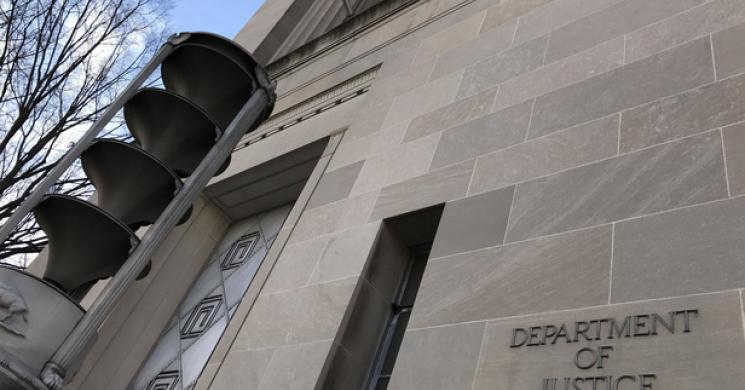
Guilty Partes to Receive Carrots to Help Comply?
In its efforts to encourage corporations to both comply with the Foreign Corrupt Practices Act (FCPA) and to cooperate with government enforcement efforts, the U.S. Department of Justice (DOJ) has historically relied on announcements of large penalties combined with vague assurances that companies were treated more favorably if they made voluntary disclosures and cooperated with government investigations. The business community has largely been skeptical of these assurances, fearing that disclosure will embroil them in lengthy and costly investigations with no guaranteed benefit.
INDUCING SELF-DISCLOSURE
With this backdrop, in April 2016, the DOJ announced a one-year pilot program intended to provide more specific incentives to induce self-disclosure of potential FCPA violations, full cooperation with ensuing investigations, and remediation of conditions that led to violations.
In 2016, the DOJ used the pilot program to significantly emphasize voluntary disclosure, while also announcing very significant penalties in matters in which the settling company did not disclose its misconduct to the DOJ.
Thus the DOJ appears to be brandishing both an increasingly formidable stick and a more appealing carrot in its effort to incentivize compliance and cooperation.
The pilot program conditions favorable treatment — including the type of disposition, the size of any fine and the avoidance of a compliance monitor — on whether a company satisfies the DOJ's requirements for disclosure, cooperation and remediation.
If those requirements are met, the DOJ says it will consider a favorable disposition, including declination of prosecution notwithstanding a finding of misconduct and a significant reduction in the monetary penalty based on the DOJ's calculation of the fine under the federal sentencing guidelines.
If the requirements are not met, the DOJ may seek higher penalties and imposition of a potentially burdensome compliance monitor.
FCPA resolutions in 2016 reflected both extremes of the DOJ's enforcement strategy.
In an unprecedented series of letters, the DOJ announced that, pursuant to the pilot program, it had declined prosecution in five matters in which it found FCPA violations but where the companies disclosed, cooperated, remediated, and agreed to disgorge the pecuniary gain from the misconduct.
But in other matters, the DOJ also sought and obtained extraordinary fines.
Six cases included monetary components topping $100 million. Two of them, each resolved on a global basis where U.S. authorities split the fines with foreign authorities, took monetary penalties to new heights: Odebrecht, a Brazilian construction conglomerate, agreed to a $2.6 billion resolution for a worldwide bribery scheme, and VimpelCom, a Dutch telecommunications company, agreed to a $795 million resolution in connection with a subsidiary's bribery scheme.
Full Story HERE
Regulatory Headlines
US DOJ considers "carrots" for leniency applicants
The US Department of Justice’s antitrust division is looking at ways to ensure that companies that plead guilty and obtain leniency still have an incentive to cooperate, even as they face follow-on damages claims.
Enforcers debate their role in private enforcement
The head of the Dutch competition authority denied today that agencies have a role in private damages litigation, but antitrust enforcers from the EU, Germany and the US suggested that public and private enforcement should be more complementary in nature.
Non-compete agreement fined in Portugal
Portugal’s Competition Authority last week fined a retailer and an electricity distributor €38.3 million for including a non-compete agreement as part of a deal in which electricity customers could spend vouchers at the retailer.
Antitrust fines are too low, says Australian head
The Australian Competition and Consumer Commission’s fines are “stunningly” low – too low to be a real deterrent, the enforcer’s chief Rod Sims said on Saturday.
South Africa conditions Bayer/Monsanto on jobs and divestitures
Agribusiness companies Bayer and Monsanto will sell off assets and commit to keep job numbers static for several years to obtain South African antitrust clearance of their US$66 billion tie-up.
Roth: panel coordinating EU antitrust claims impracticable
The president of the UK’s Competition Appeal Tribunal today called the prospect of the EU developing a system in which member states can coordinate multijurisdictional competition damages litigation “fanciful”, but said the UK could learn from the US on how to handle similar claims filed in its own courts.
CADE calls for conditional Dow/Du Pont deal approval
Brazil’s competition enforcer issued a preliminary opinion last week approving the global merger between US agrichemical companies Dow Chemicals and DuPont, conditional on the divestment of certain parts of the new entities’ portfolio in Brazil and abroad.
Funder frustrated by English courts and delay tactics
The head of Harbour Litigation Funding today said she was frustrated about the length of English antitrust litigation, and slammed defence lawyers for using delaying tactics.
Recent highlights
Mexico hits pension funds with billion-peso penalty
Mexico’s competition watchdog yesterday fined four pension funds and 11 individuals a total of 1.1 billion pesos (€52.7 million) – a record-breaking penalty for a cartel – after finding they had colluded to manipulate the national pension fund market by divvying up clients.
US FTC info leads to merger reversal and fine in Hungary
Hungary’s competition watchdog reversed its clearance of German chipmaker Infineon’s acquisition of US semiconductor technology company Wolfspeed on Tuesday, and fined Infineon 75.9 million forints (€244,000) for providing misleading information.
CADE appoints new president and commissioner
Observers in Brazil have raised concerns that new nominees for president and commissioner of the country’s competition watchdog have no antitrust background, but say the two appointees could do a good job if they work together with more experienced colleagues.
Read more by Soren K.Group







